What Is a Typical Day Like for a Police Chaplain?
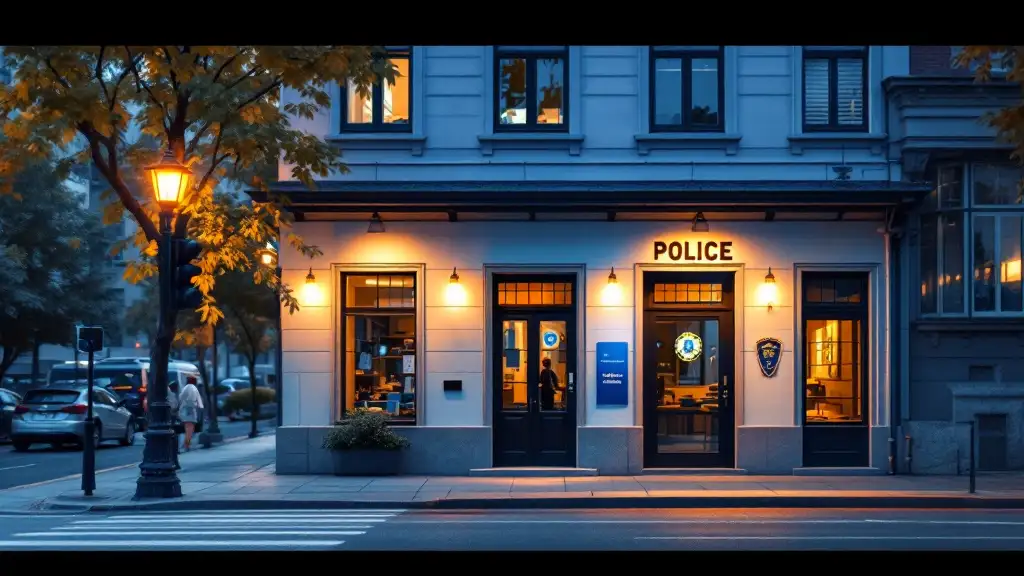

Police chaplains serve a unique and vital role within law enforcement agencies, providing spiritual guidance, emotional support, and crisis intervention to officers, victims, families, and the community. Their work is characterized by unpredictability, compassion, and a deep commitment to service, often requiring them to respond to emergencies at any hour. This article explores what a typical day looks like for a police chaplain, highlighting their duties, responsibilities, skills, and the personal stories that illuminate this demanding yet rewarding role.
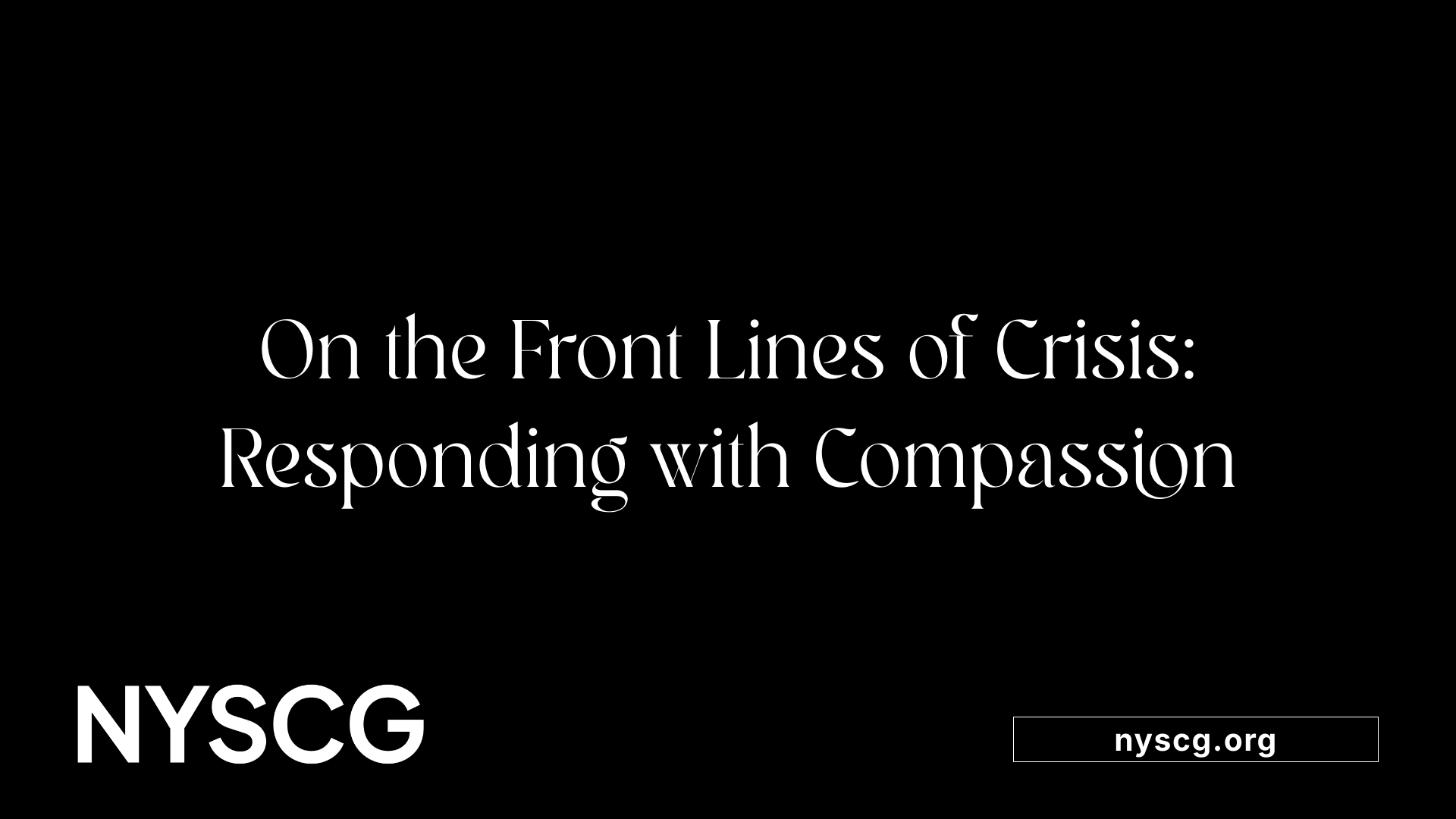
A police chaplain’s daily routine is marked by readiness and flexibility. They are often called upon around the clock to offer support during emergencies, including accidents, natural disasters, or traumatic incidents involving injuries or fatalities.
On any given day, a chaplain might respond to a traffic collision scene, providing immediate spiritual support to victims, witnesses, and officers. Their presence offers reassurance and comfort amid chaos. They may also assist with death notifications—delivering tragic news to families with compassion and sensitivity.
Chaplains are actively involved in crisis response, including participating in critical incident stress debriefings (CISD) for officers or community members affected by traumatic events. They visit hospitals to support injured personnel or distressed victims, ensuring those affected do not feel alone in their struggles.
During disaster responses, such as hurricanes or tornadoes, police chaplains coordinate efforts to aid victims and assist emergency responders. They often stay late into the night or arrive early in the morning, demonstrating their commitment to being present when it’s most needed.
Beyond immediate scene response, chaplains support officers’ mental health by providing ongoing counseling during and after crises. They also help members and their families cope with the stresses of policing, often serving as a listening ear long after the incident ends.
Because of their high visibility and trusted presence, police chaplains are integral to community outreach, helping to answer questions and build positive relations between law enforcement and citizens. Their work, focused on providing comfort, spiritual assistance, and crisis intervention, ensures that those facing the darkest moments receive hope and guidance.
| Aspect | Description | Additional Details |
|---|---|---|
| Scene Response | Responding to accidents or disasters | Immediate presence on scene, emotional support, information gathering |
| Death Notifications | Delivering tragic news | Compassionate contact with families, providing guidance and reassurance |
| Crisis Support | Crisis debriefings and mental health aid | Supporting officers and community members after incidents |
| Community Engagement | Public relations and outreach | Building trust, offering spiritual guidance in non-intrusive ways |
| Disaster Relief | Assisting in large-scale emergencies | Coordinating help, participating in relief efforts |
The role of a police chaplain is vital, especially during moments of crisis. Their presence not only alleviates immediate suffering but also helps foster resilience within the community and law enforcement personnel. With proper training and a compassionate approach, chaplains act as steady anchors in turbulent times, offering spiritual solace and practical support when it’s needed most.
Police chaplains are often the first responders to a wide range of emergencies and critical incidents. Their role involves providing immediate emotional and spiritual support in moments of crisis, whether at the scene of an accident or during a disaster. These situations are unpredictable and emotionally demanding, requiring chaplains to be flexible, compassionate, and prepared.
One common scenario is chemical truck accidents, which can involve hazardous materials and pose significant risks to public safety. Chaplains are called to the scene to offer prayer and comfort to both victims and responders, helping everyone cope with the trauma.
Motorcycle accidents involving officers’ family members are particularly sensitive incidents. When such tragedies occur, chaplains provide immediate support to grieving families and involved officers, helping them navigate their grief and trauma.
Police line-of-duty deaths are another critical area where chaplains play a vital role. They often work closely with families and department personnel to deliver death notifications with compassion and respect, and assist in memorial services and emotional recovery efforts.
Natural disasters like hurricanes and tornadoes also require coordinated response efforts from police chaplains. They offer spiritual guidance, help affected families understand their options, and support community rebuilding. Their presence during these calamities provides reassurance and comfort to those enduring loss.
Police chaplain Terry Wigley shares vivid examples from his work, illustrating the varied scenarios he has encountered. One incident involved responding to a chemical truck accident, where he provided emotional support amid chaos and danger. He also recounts supporting an officer’s family after a motorcycle accident involving the officer's child. Most poignantly, he describes the grief and support required after a police officer’s death, organizing debriefings and counseling for officers and loved ones.
Rev. Melodye Surgeon VanOudheusden highlights her personal experiences accompanying officers during high-stress situations. She describes riding along to understand police culture better and to provide a listening ear to officers and families in crisis. Jim, a seasoned chaplain, emphasizes that these stories are a testament to the unpredictable yet vital nature of their work, which involves active response, crisis management, and emotional healing.
Overall, police chaplains serve as crucial figures in emergency response, ensuring that victims, officers, and their families receive not only logistical assistance but also compassionate emotional and spiritual care during life’s most difficult moments.
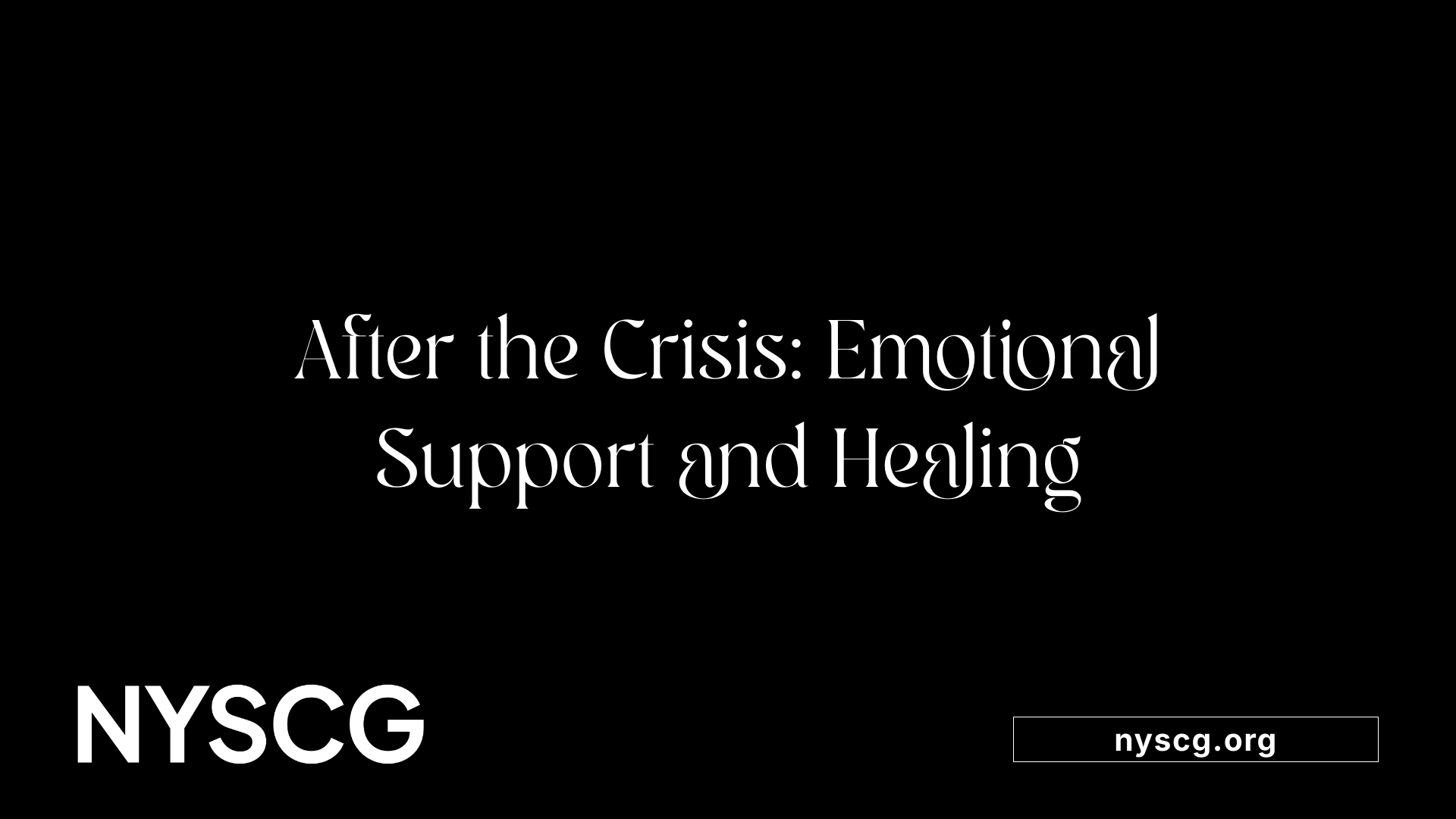
Police chaplains play a crucial role in supporting law enforcement officers and the community, especially during or after traumatic events. Their day-to-day responsibilities often include providing spiritual guidance, emotional support, and crisis intervention to officers, families, and victims.
One of their primary tasks is assisting with death and injury notifications. They approach these sensitive moments with compassion, offering comfort and guidance to grieving families and loved ones. Chaplains may also respond at any hour—be it early mornings or late nights—whenever an emergency or critical incident occurs.
In addition to crisis response, police chaplains participate in ceremonial duties, such as funerals, memorial services, and official functions. They provide prayer and reflections that help bring closure and community support.
Community engagement is another vital aspect. As visible figures, they foster trust between the police department and the public by answering questions and participating in outreach activities. Their presence at community meetings can help bridge gaps and promote understanding.
Chaplains also support officers through peer support programs and post-incident debriefings, helping them cope with the stresses of their work. They may host or assist in Critical Incident Stress Debriefings (CISD), which involve discussions after traumatic incidents to process emotions and prevent long-term psychological effects.
Training and certification are essential. Many chaplains are certified through organizations like the International Conference of Police Chaplains (ICPC) and have backgrounds in ministry, counseling, or mental health. This preparation ensures they deliver competent, respectful aid across different situations.
While their role doesn’t include law enforcement powers, police chaplains serve as trusted confidants and spiritual guides. They maintain confidentiality, set clear boundaries, and avoid gossip, ensuring officers and community members feel safe sharing their feelings.
Lastly, police chaplains often help with community outreach, speaking at various organizations or facilitating support groups for ex-offenders and victims. Their presence and work aim to promote healing, resilience, and positive relationships within the community.
Police chaplains are equipped with a range of skills that allow them to offer vital support to law enforcement officers and the community. Their training typically includes pastoral care, crisis intervention, and spiritual guidance, ensuring they can handle sensitive and challenging situations effectively.
Most police chaplains complete specialized academies, such as the 150-hour police chaplain training program, which covers critical incident response, death notifications, trauma management, and mental health issues like depression, grief, and PTSD. Additional courses like the I.F.O.C. Chaplaincy Training Course and the USCC Academy further enhance their expertise in areas such as disaster spiritual care, active shooter situations, and conflict resolution.
These professionals are usually ordained or licensed by recognized religious organizations and actively pursue ongoing professional development to sharpen their skills. Their training emphasizes emotional and spiritual counseling, community engagement, and an understanding of police procedures, enabling them to support officers and the public during crises with compassion and competence.
Police chaplains serve as trusted confidantes, mediators, and spiritual guides, helping individuals cope with stress and trauma. Their broad skill set allows them to perform a range of functions—from comforting victims and families to assisting officers through difficult times—making their role essential within law enforcement agencies.
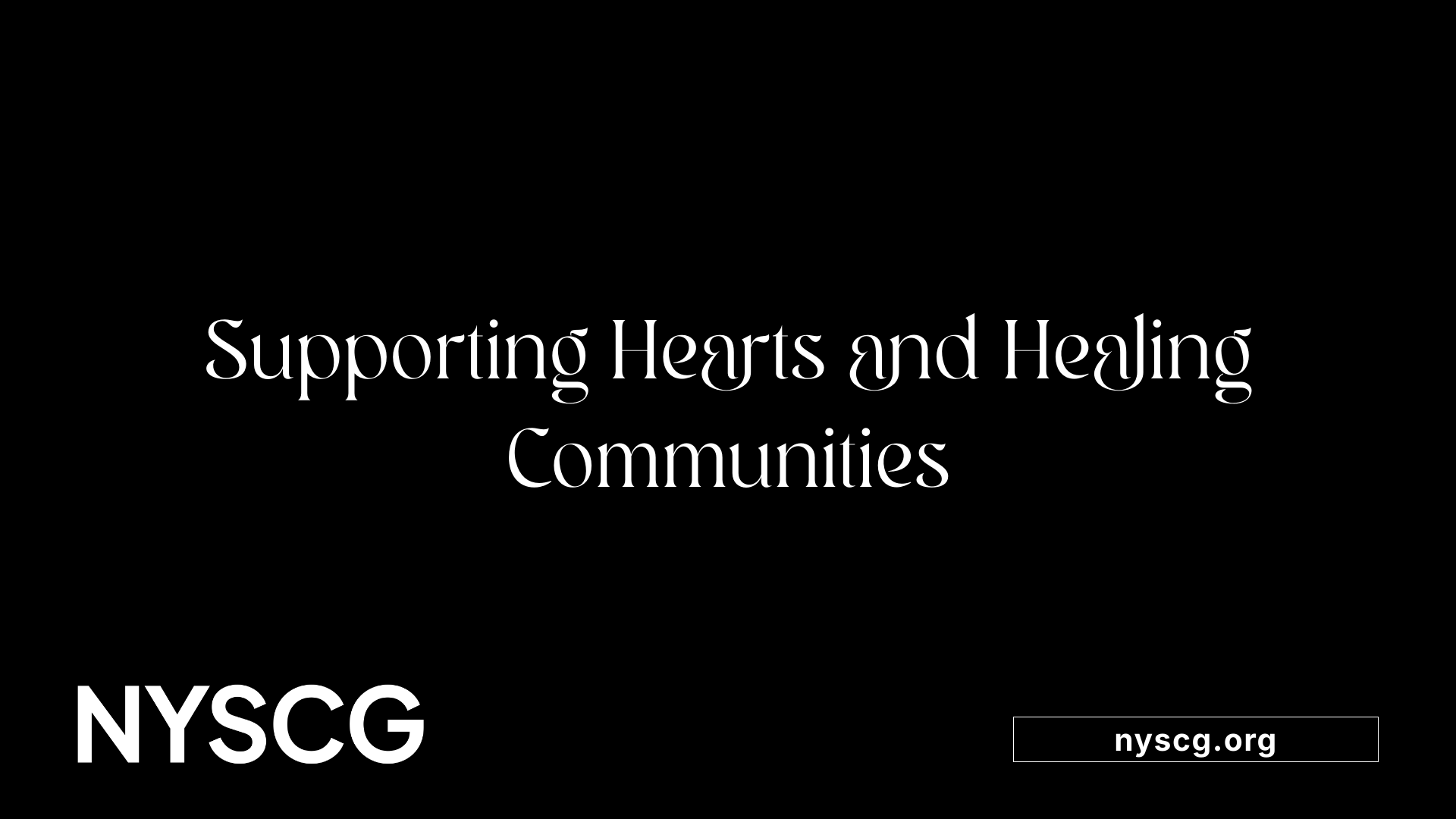
Police chaplains serve as vital resources for law enforcement and the public by offering spiritual guidance, emotional support, and crisis intervention. Their roles include assisting officers coping with job-related stress, burnout, and traumatic incidents. Many officers turn to chaplains as a trusted, confidential peer support system, especially those hesitant to seek traditional mental health services.
In correctional settings, chaplains facilitate religious and psychological support for inmates, contributing to improved behavior and smoother reintegration into society. They also help during the reentry process, providing moral and emotional encouragement.
Beyond the department, police chaplains play an important role in community relations. They organize outreach events, participate in public ceremonies, and serve as representatives of diverse faith traditions. These activities foster understanding, build trust, and reinforce partnerships between police and residents.
During critical incidents, such as deaths, accidents, or disasters, chaplains are often the primary spiritual figures supporting victims and their families. Their involvement in death notifications and funeral arrangements emphasizes compassion, presence, and understanding, helping families navigate grief.
Police chaplains are specially trained to deliver death notices with dignity and empathy. They usually accompany officers during in-person, face-to-face contact, offering words of comfort, listening to families' needs, and guiding them through the next steps. Their presence provides emotional solace in moments of tragedy.
Chaplaincy members frequently participate in ceremonial functions like funerals and memorials for fallen officers and victims. They help organize these events, deliver invocations or blessings, and support families through grief. They help ensure that these services honor the lives of those lost while providing comfort to the bereaved.
Police chaplains act as community ambassadors, fostering trust and understanding between law enforcement and the public. They often participate in speaking engagements, community meetings, and interfaith dialogues. By representing various faith backgrounds, they promote inclusiveness and mutual respect.
They also respond to community needs during emergencies like hurricanes or tornadoes, mobilizing support and relief efforts. Their approachable presence helps ease fears and provides stability during difficult times.
| Aspect | Description | Additional Role |
|---|---|---|
| Supporting officers | Providing emotional and spiritual care, stress reduction | Helping cope with work-related trauma |
| Assistance at traumatic scenes | Gathering information, supporting victims and families | Offering comfort during crises |
| Community engagement | Organizing outreach, participating in events, fostering trust | Serving as a bridge between police and residents |
| Crisis response | Responding to disasters, providing aid and relief | Coordinating with other agencies |
Overall, police chaplains act as compassionate facilitators in their communities and departments. Their presence and support help foster resilience, trust, and healing during some of life's most difficult moments.
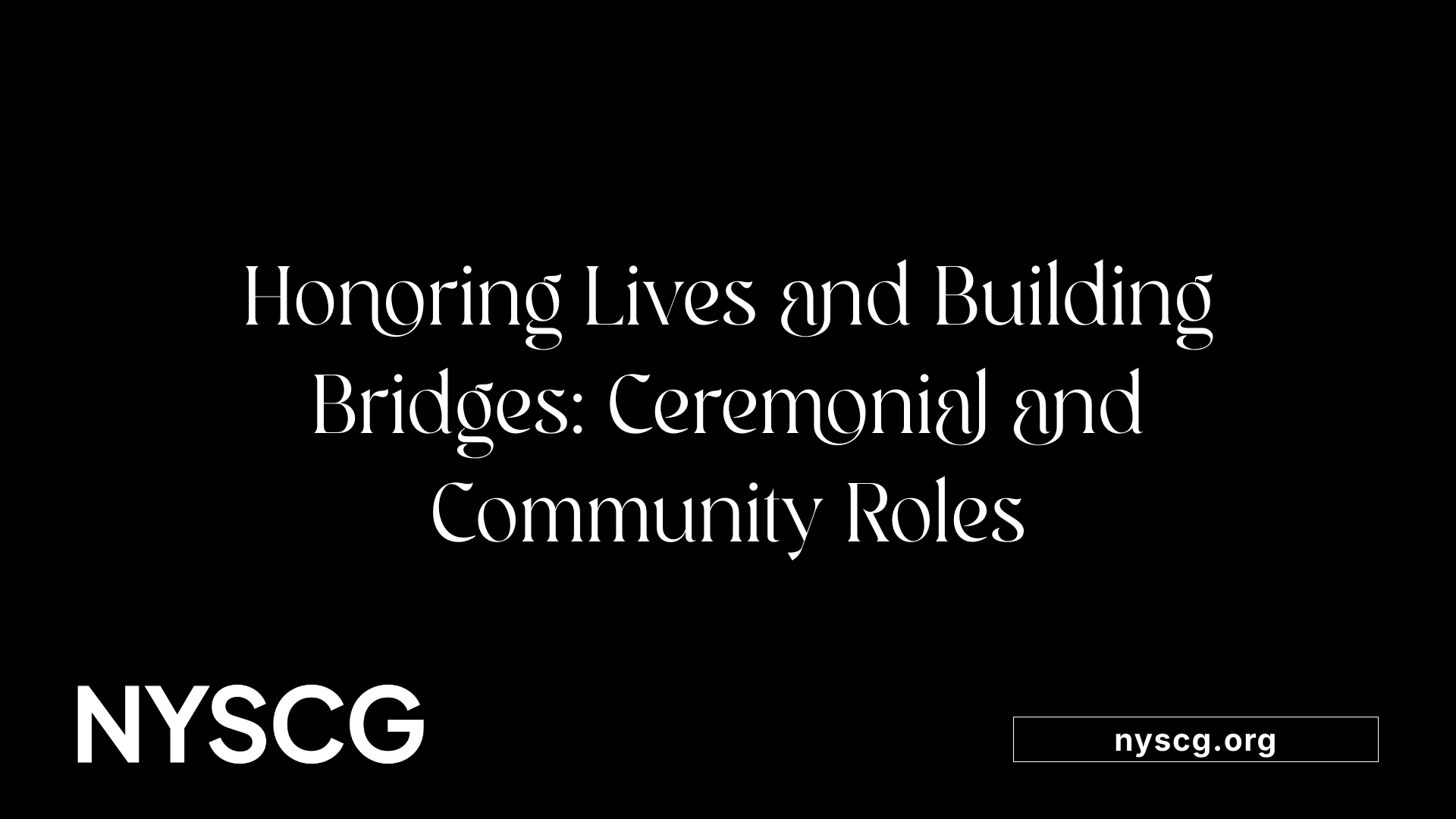
Police chaplains undertake a diverse range of responsibilities that extend beyond crisis intervention to include ceremonial and community outreach activities. They often serve during funerals, memorial services, and official law enforcement ceremonies, providing spiritual support and facilitating meaningful tributes to victims, fallen officers, and community members.
In community settings, police chaplains frequently speak at local organizations, schools, and faith groups, aiming to foster trust and cooperation between law enforcement and the public. They also visit hospitals to support victims, their families, and injured officers, offering comfort and spiritual guidance during difficult times.
These professionals are trained to manage sensitive situations such as death notifications, providing a compassionate face that helps ease pain and uncertainty for families and loved ones. Their presence at emergencies is crucial; they respond swiftly to scenes of accidents, disasters, or critical incidents, often arriving early and offering immediate emotional and spiritual support.
Furthermore, police chaplains support the well-being of officers and their families through confidential counseling. They help officers cope with the stresses of their work, including trauma and burnout. Their role also involves participating in departmental training to ensure they provide appropriate, respectful, and effective support in diverse situations.
Overall, police chaplains serve as vital connectors between the department and the community, emphasizing empathy, respect for all faith backgrounds, and unwavering support in times of need.
| Activity | Typical Involvement | Additional Notes |
|---|---|---|
| Funerals and memorials | Conducting or assisting during ceremonies | Provide spiritual comfort and facilitate remembrance |
| Community speaking engagements | Addressing community groups, schools | Promote positive relations and understanding |
| Hospital visits | Visiting the sick and injured | Offer emotional, spiritual, and moral support |
| Critical incident response | Scene presence and victim support | Arrive early, provide immediate comfort |
| Death notifications | In-person, compassionate communication | Ensure families receive support with dignity |
| Family and victim support | Ongoing emotional assistance | Help navigate crisis and healing phases |
Police chaplains, like Pastor Douglas Rowse, exemplify the blend of spiritual support, community service, and emotional resilience, vital for sustaining trust and compassion in law enforcement contexts.
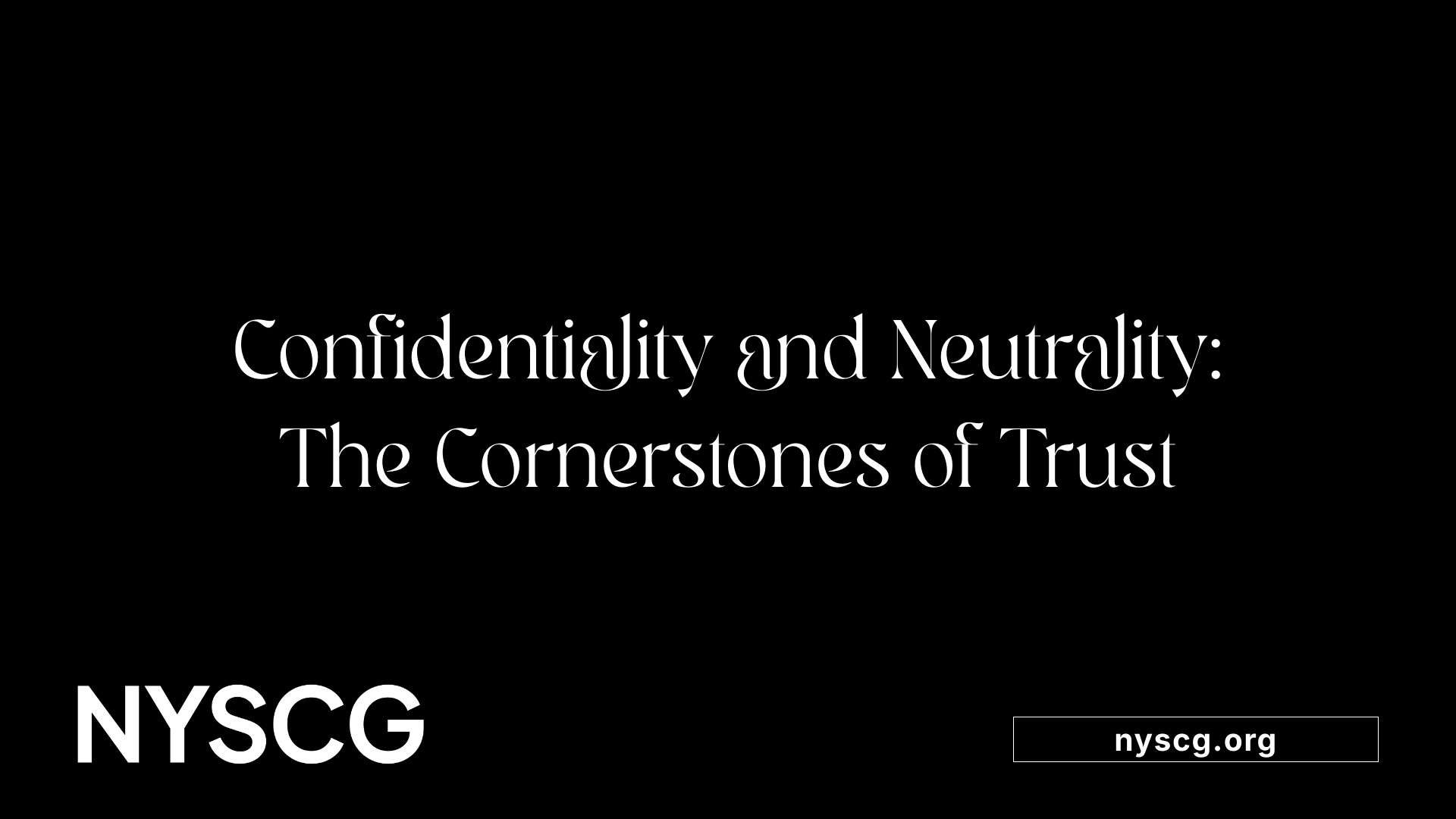
A core aspect of a police chaplain’s role is maintaining strict confidentiality. When responding to incidents, chaplains often gather sensitive information from officers, victims, and families. It’s essential they handle this information discreetly to foster trust and ensure that individuals feel safe sharing personal details.
Neutrality is equally vital. Chaplains serve people across various faiths and backgrounds, providing support without bias or proselytizing. They focus on offering comfort and spiritual aid while respecting diverse beliefs. This neutrality helps their presence be perceived as non-judgmental and trusted.
Trust is the cornerstone of effective police chaplaincy. Officers and community members need to see chaplains as dependable, accessible figures who deliver support without intrusion. Regular visibility at scenes, constables’ stations, and community events builds familiarity and trust.
Chaplains like Harold Elliott emphasize the importance of being available and approachable, especially during critical incidents such as death notifications or disasters. Keeping a calm, caring presence fosters bonds with officers and residents, encouraging open communication and mutual respect.
To uphold professionalism, chaplains must establish and maintain clear boundaries. Confidentiality extends beyond just safeguarding information—chaplains are advised to avoid gossip, rumors, or discussing sensitive cases with others.
Setting limits also involves managing emotional involvement. Chaplains are there to support and listen, not to become entangled in departmental politics or personal disputes. Clear boundaries help preserve trust and ensure they remain effective, impartial confidants for all parties involved.
Police chaplains require specialized training in areas like pastoral care, crisis intervention, and spiritual support. Many complete accredited programs, including the 150-hour police chaplain academy, which covers critical incident response, death notifications, trauma management, and mental health issues like depression and PTSD.
Further advanced courses, such as the I.F.O.C. Chaplaincy Training Course and programs from the USCC Academy, prepare chaplains for disaster spiritual care, active shooter situations, and conflict resolution. Most chaplains are ordained or licensed by recognized religious bodies and pursue ongoing professional development.
Their skills combine emotional and spiritual counseling, community engagement, and a practical understanding of law enforcement procedures. This comprehensive training enables them to serve effectively in crises and help foster a safer, more compassionate community.
Police chaplains serve an essential role in law enforcement agencies, providing spiritual support, crisis intervention, and community outreach without holding official law enforcement powers. Most police chaplain programs operate on a volunteer basis, with chaplains offering their time and expertise to support both officers and the public during stressful or tragic incidents.
The volunteer status of chaplains allows them to be highly accessible, often responding to emergencies at any hour, including late-night hours, without the constraints or risks associated with armed officers. Their presence at crime scenes, accidents, and disasters offers immediate comfort and emotional support, helping victims, families, and officers cope with trauma.
Recruitment of police chaplains involves selecting individuals with a strong background in ministry, counseling, or related fields. Once recruited, they undergo specific training to prepare for their responsibilities. This training includes courses on crisis intervention, death notifications, mental health issues such as depression and PTSD, and trauma management.
The training programs are often accredited and comprehensive. For instance, a typical police chaplain academy involves a 150-hour curriculum covering critical incident response, dealing with grief, conflict resolution, and community relations. Additional advanced courses include the International Conference of Police Chaplains (ICPC) Chaplaincy Training Course and the USCC Academy programs, which further enhance skills in disaster response, active shooter situations, and spiritual care in crisis.
Qualified police chaplains are usually ordained or licensed by recognized religious bodies, ensuring they meet certain spiritual and moral standards. Many participate in ongoing professional development to stay current on best practices and to expand their service competencies.
The coordination and support for these volunteers are managed by a primary chaplain, often selected by the police chief, who oversees recruitment, training, and ongoing education. This structure ensures that volunteer chaplains are prepared to handle the emotional and spiritual demands of their work while maintaining professionalism and confidentiality.
For those interested in becoming police chaplains, inquiries can be made by contacting the department directly, such as at the provided phone number 847-289-2578. Overall, police chaplain volunteer programs are vital to fostering trust within the community and providing comprehensive support during critical incidents, demonstrating the importance of dedicated, trained volunteers in law enforcement.
| Aspect | Details | Additional Notes |
|---|---|---|
| Volunteer Status | Unpaid, community-based service | Offers flexibility and accessibility |
| Training Requirements | 150-hour accredited programs, specialized courses | Focused on crisis intervention, trauma, and spiritual care |
| Skills Developed | Crisis management, counseling, conflict resolution | Includes ongoing professional development |
| Responsibilities | Emergency response, death notifications, support during crises | Engages with community and assists officers and victims |
| Recruitment Process | Selection based on ministry background, licensing, training | Managed by department leadership |
| Physical Role | Non-armed, visible, accessible in emergencies | Enhances community trust and officer well-being |
| Certification & Certification | Ordination, advanced training courses | Ensures standards and continuous growth |
The role of a police chaplain is both challenging and compassionate, serving at the intersection of law enforcement, community, and faith. Their typical day is marked by versatility—from responding swiftly to emergencies to providing ongoing emotional and spiritual support. Their presence at critical incidents helps alleviate stress, foster resilience, and build trust within the community. Through specialized training, confidentiality, and a deep understanding of police culture and community needs, police chaplains fulfill an essential role that often goes unseen but is deeply impactful. As dedicated volunteers and trusted confidantes, police chaplains continue to serve with professionalism and compassion, standing as a silent but vital pillar within the law enforcement framework.
All you need is the will to make the world a better place.
New York State chaplain group inc. is a tax deductible organization with a federal tax Id number 92-383-4921